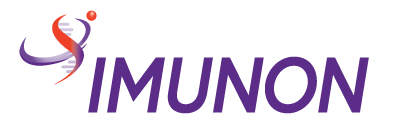Celsion Reports Translational Research Data from its Phase 1b Study of GEN-1 Immunotherapy in Recurrent Ovarian Cancer
"We now have clear clinical evidence that treatment of platinum-resistant ovarian cancer with GEN-1 produces a sustained, localized immune response, which then translates to the compelling activity and tolerability profile we have seen in early clinical studies," said
The Phase 1B dose escalating study enrolled 16 patients with platinum-resistant ovarian cancer and evaluated the safety, tolerability and efficacy of GEN-1 in combination with pegylated doxorubicin as well as the effect of intraperitoneal injection of GEN-1 on IL-12 and tumor cytokine levels. Patients received pegylated liposomal doxorubicin on day 1 and GEN-1 on days 1, 8, 15 and 22. This treatment regimen was repeated every 28 days in the absence of disease progression or toxicity.
The new translational data reported today is highlighted below:
- Intraperitoneal administration of GEN-1 in platinum-resistant ovarian cancer patients resulted in a significant increase in IL-12 levels in peritoneal fluid samples. IL-12 levels were quantifiable in 91% of evaluable fluid samples collected post GEN-1 treatment. None of the evaluable pre-treatment peritoneal fluid samples had any detectable IL-12 levels.
- The IL-12 levels were detectable for at least seven days after GEN-1 treatment.
- In comparison to peritoneal fluid, the IL-12 levels in plasma samples (systemic exposure) following GEN-1 treatment were not detectable or were very low in quantity.
- Significant increases in levels of IFN-γ, a key downstream mediator of IL-12 action, were observed in peritoneal fluid but not in plasma samples. At least a 5-fold increase above pre-treatment level in IFN- γ was observed in most samples, with the highest increase observed at 120-fold. Similar results were observed with TNF-α levels, with the highest increase observed at 77-fold over pre-treatment control.
- A publication of this data is being prepared for submission for major scientific review which will detail all cytokine levels observed in this study.
"With these remarkable findings we feel confident that the data we expect to collect from the OVATION Study will provide further evidence that GEN-1, our gene-mediated immunotherapy, has significant potential in oncology generally and in ovarian cancer specifically," noted
About
Celsion is a fully-integrated oncology company focused on developing a portfolio of innovative cancer treatments, including directed chemotherapies, immunotherapies and RNA- or DNA-based therapies. The Company's lead program is ThermoDox®, a proprietary heat-activated liposomal encapsulation of doxorubicin, currently in Phase III development for the treatment of primary liver cancer and in Phase II development for the treatment of recurrent chest wall breast cancer. Celsion's pipeline also includes GEN-1, a DNA-based immunotherapy for the localized treatment of ovarian and brain cancers. Celsion has two platform technologies for the development of novel nucleic acid-based immunotherapies and other anti-cancer DNA or RNA therapies, including TheraPlas™ and TheraSilence™. For more information on Celsion, visit our website: http://www.celsion.com.
Celsion wishes to inform readers that forward-looking statements in this release are made pursuant to the "safe harbor" provisions of the Private Securities Litigation Reform Act of 1995. Readers are cautioned that such forward-looking statements involve risks and uncertainties including, without limitation, unforeseen changes in the course of research and development activities and in clinical trials; FDA and regulatory uncertainties and risks; the significant expense, time, and risk of failure of conducting clinical trials; possible acquisitions or licenses of other technologies, assets or businesses; possible actions by suppliers, competitors, regulatory authorities; and other risks detailed from time to time in the Celsion's periodic reports and prospectuses filed with the Securities and Exchange Commission. Celsion assumes no obligation to update or supplement forward-looking statements that become untrue because of subsequent events, new information or otherwise.
Celsion Investor Contact
Sr. Vice President and CFO
609-482-2455
jchurch@celsion.com
Celsion Media Contacts
806-483-1721
Director, Communications
hshelare@celsion.com
212-253-8881
bberry@berrypr.com
To view the original version on PR Newswire, visit:http://www.prnewswire.com/news-releases/celsion-reports-translational-research-data-from-its-phase-1b-study-of-gen-1-immunotherapy-in-recurrent-ovarian-cancer-300200686.html
SOURCE
News Provided by Acquire Media

